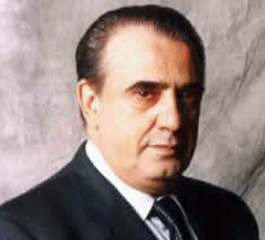Eduardo Camaño facts for kids
Quick facts for kids
Eduardo Camaño
|
|
|---|---|
 |
|
| Minister of Government of Buenos Aires Province | |
| In office 20 March 2009 – 10 December 2011 |
|
| Governor | Daniel Scioli |
| Preceded by | Alberto Pérez |
| Succeeded by | Cristina Álvarez Rodríguez |
| President of the Chamber of Deputies in exercise of the Executive Branch | |
| In office 31 December 2001 – 2 January 2002 |
|
| Preceded by | Adolfo Rodríguez Saá (as President) |
| Succeeded by | Eduardo Duhalde (as President) |
| President of the Chamber of Deputies | |
| In office 5 December 2001 – 6 December 2005 |
|
| Preceded by | Rafael Pascual |
| Succeeded by | Alberto Balestrini |
| National Deputy | |
| In office 10 December 1991 – 10 December 2007 |
|
| Constituency | Buenos Aires Province |
| Mayor of Quilmes | |
| In office 10 December 1987 – 10 December 1991 |
|
| Preceded by | Eduardo Vides |
| Succeeded by | Aníbal Fernández |
| Personal details | |
| Born | 17 June 1946 Buenos Aires, Argentina |
| Political party | Justicialist |
| Profession | Lawyer |
| Signature | |
Eduardo Oscar Camaño was born on June 17, 1946, in Buenos Aires, Argentina. He is a politician from the Justicialist Party. He briefly served as the acting president of Argentina for two days, from December 31, 2001, to January 1, 2002. This happened during a time of political change in the country.
Contents
Eduardo Camaño's Political Journey
Eduardo Camaño has held several important roles in Argentine politics. He started his career in local government and then moved on to national politics.
Early Political Roles
Camaño served as the Mayor of Quilmes Partido, a region in Argentina, from 1987 to 1991. After that, he became a National Deputy for Buenos Aires Province. He held this position in the Argentine Chamber of Deputies from 1991 until 2007.
Becoming Acting President
In 2001, Eduardo Camaño became the leader of the main political group in the lower house of the Argentine Congress. This role is called the "majority leader." Because of this position, he was next in line to take over if the president and vice president could not serve.
He became the acting president for a very short time. This happened because the interim president, Adolfo Rodríguez Saá, and the provisional Senate president, Ramón Puerta, both resigned. Camaño stepped in to lead the country for two days until a new president could be chosen.
Later Political Activities
After his time as acting president, Camaño continued to be active in politics. He was part of a group within the Peronist party that did not always agree with the then-president, Néstor Kirchner.
In 2007, Camaño tried to be re-elected as a deputy. He led a group of Peronists who were against President Kirchner. However, his group did not win enough votes, and he lost his seat in the Chamber of Deputies.
Later, Camaño helped lead the national council of the Justicialist Party. This made him an important figure in the party. In 2008, when Néstor Kirchner took over the leadership of the Justicialist Party, Camaño was offered a leadership role. This was seen as an effort to bring different parts of the party together.
See also
 In Spanish: Eduardo Camaño para niños
In Spanish: Eduardo Camaño para niños

